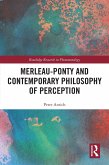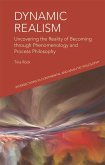Georg Wilhelm Friedrich Hegel's "The Phenomenology of Mind" is a seminal text that charts the evolution of consciousness as it journeys from sense perception to absolute knowledge. Written in 1807, Hegel employs a dialectical method, weaving together abstract thought and empirical observation to demonstrate how consciousness develops through stages of self-awareness, ethical life, and ultimately towards the realization of universal spirit. The literary style is dense yet rich with philosophical insight, allowing readers to explore profound themes of self, society, and reality itself within the framework of German Idealism, making it a cornerstone of modern philosophy. Hegel, born in Stuttgart in 1770, was deeply influenced by the tumult of the Enlightenment, the French Revolution, and the philosophical inquiries of his predecessors like Kant. His academic background in theology, combined with his engagement in the socio-political changes of his time, propelled him to examine the nature of consciousness as a phenomenon not only of the individual but as a collective, historical unfolding. This contextual backdrop informed Hegel's insistence on the interrelation between the individual and the universal. For readers interested in the intricate dialogue between self-consciousness and society, "The Phenomenology of Mind" offers invaluable insights. It is recommended for anyone seeking a deeper understanding of philosophical thought, as it not only elucidates the development of consciousness but also lays the groundwork for modern existential and political theory.
Dieser Download kann aus rechtlichen Gründen nur mit Rechnungsadresse in A, B, BG, CY, CZ, D, DK, EW, FIN, F, GR, H, IRL, I, LT, L, LR, M, NL, PL, P, R, S, SLO, SK ausgeliefert werden.
Hinweis: Dieser Artikel kann nur an eine deutsche Lieferadresse ausgeliefert werden.









